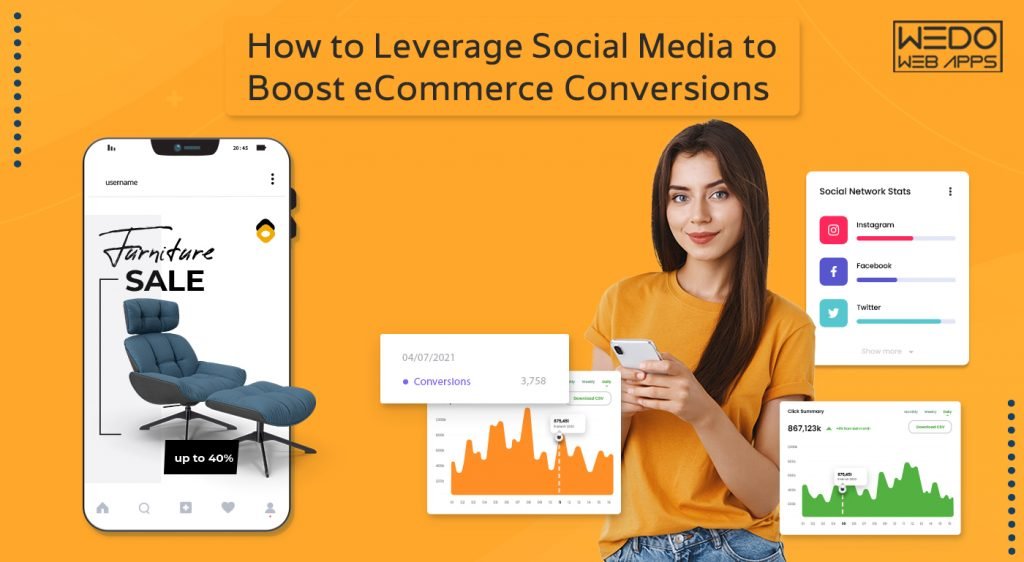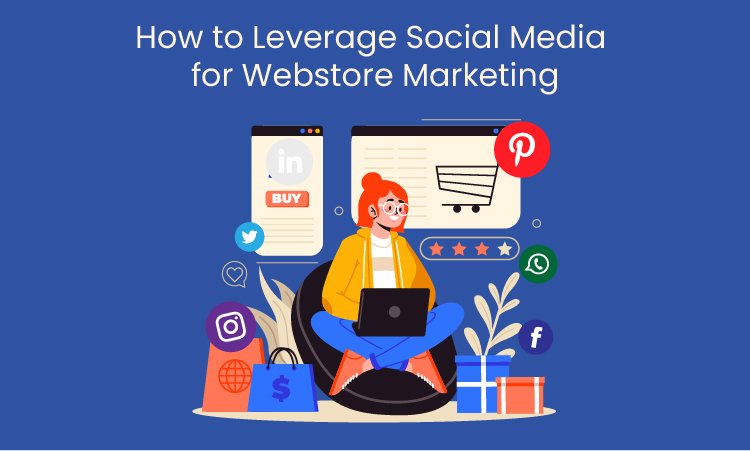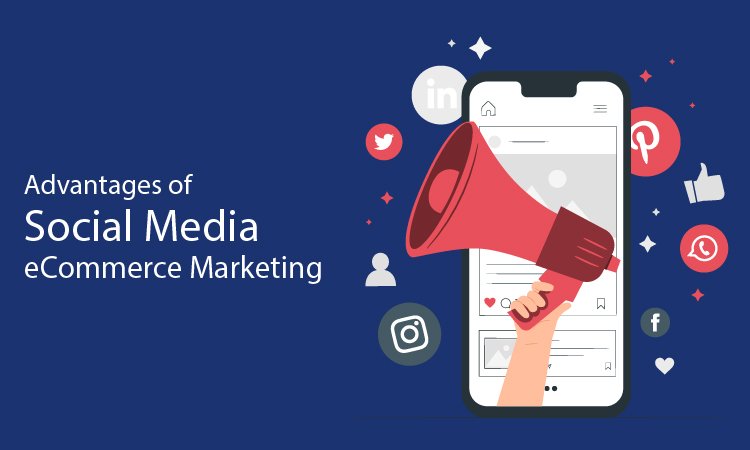22 Oct, 2022 | Internet Marketing
How to Leverage Social Media to Boost eCommerce Conversions

What is Social Media Online Store Marketing?
Social Media Marketing Strategy is a bunch of tactics that you can use to market your offerings. Depending on your business plan and aim, your strategy may focus on:- Promoting an eCommerce business which means driving traffic to your website or application
- Selling your offerings directly on social channels
- Interacting with your customers, both before and after purchase
- Collecting the relevant information about your industry (your audience, competitors, etc.)
How to Leverage Social Media for Webstore Marketing
 Here are all the ways that would help you create a brand on social media and sell more products.
Here are all the ways that would help you create a brand on social media and sell more products. - Building Brand Awareness
- Advertising to Boost eCommerce Sales
- Selling Products Directly on Social Media
- Instagram and Facebook are the Master Players
- Shake Hands with Social Media Influencers to Promote your Brand
- Post User-generated Content
Advantages of Social Media eCommerce Marketing
 It is worth spending only 6 hours a week increasing your brand awareness, traffic and ultimately generating more sales. About 90% of the marketers declared that social media generated a massive exposure to their brand; this is one of the most significant advantages social media offers to eCommerce businesses. Social Media Marketing is now an essential part of every digital marketing strategy, and any business not implementing this cost-effective marketing strategy is missing a great opportunity to grow its brand. You can easily see the importance of social media marketing, and many entrepreneurs realize the potential of social media for business growth. Apart from these, there are many significant advantages of using social networking channels for boosting eCommerce sales. Read further to know various boons of social media.
It is worth spending only 6 hours a week increasing your brand awareness, traffic and ultimately generating more sales. About 90% of the marketers declared that social media generated a massive exposure to their brand; this is one of the most significant advantages social media offers to eCommerce businesses. Social Media Marketing is now an essential part of every digital marketing strategy, and any business not implementing this cost-effective marketing strategy is missing a great opportunity to grow its brand. You can easily see the importance of social media marketing, and many entrepreneurs realize the potential of social media for business growth. Apart from these, there are many significant advantages of using social networking channels for boosting eCommerce sales. Read further to know various boons of social media. - Increased Brand Awareness
- Boost Conversions
- Drive Website Traffic
- Impact Buying Choices
- Social Media Gives a Boost to Your SEO Efforts
- Building Customer Loyalty
Integrate Social Media to Build the Best eCommerce website
Google drives approximately 20% of the eCommerce sales, but social media platforms like Facebook and Instagram are no less. Social Media drives an impressive approximation of 10% traffic to your website. This makes the use of social media very important to grow your business. Read Website Conversion Rate. It is said that the eCommerce store is the base, just like a physical store, and social media is the arms that reach out to the customers to expand the business. The ultimate goal is to make all the stages of your sales and marketing strategy work as smoothly as possible. You need to integrate social media and strive to make online shopping the most seamless experience for the customers. Social eCommerce allows business owners to sell their products where the consumers spend a lot of time, i.e., Social Media. While social platforms offer major returns, they still lack the essential benefits of an eCommerce website. So the best solution is to integrate both to make them work together. If you are looking to develop a website for your business, WeDoWebApps LLC is among the leading responsive web design companies also offering the best digital marketing services to develop and integrate your eCommerce and social account for high eCommerce sales.Frequently Asked Questions
Social media can help boost eCommerce conversions by driving traffic to a business's website, increasing brand awareness and engagement, and providing opportunities for customer interaction and feedback.
A business should focus on social media platforms that are popular among their target audience and that offer relevant features for eCommerce, such as Instagram and Facebook.
A business can use social media to drive traffic to their eCommerce website by sharing links to product pages and promotions, using hashtags and keywords to increase visibility, and leveraging social media advertising to reach a wider audience.
A business can use social media to increase customer engagement and loyalty by responding promptly to customer inquiries and feedback, offering exclusive promotions and discounts, and providing valuable content and resources related to their products and industry.
A business can use social media to increase product visibility and sales by showcasing product photos and videos, using influencer marketing to reach a wider audience, and leveraging social proof such as customer reviews and ratings.

